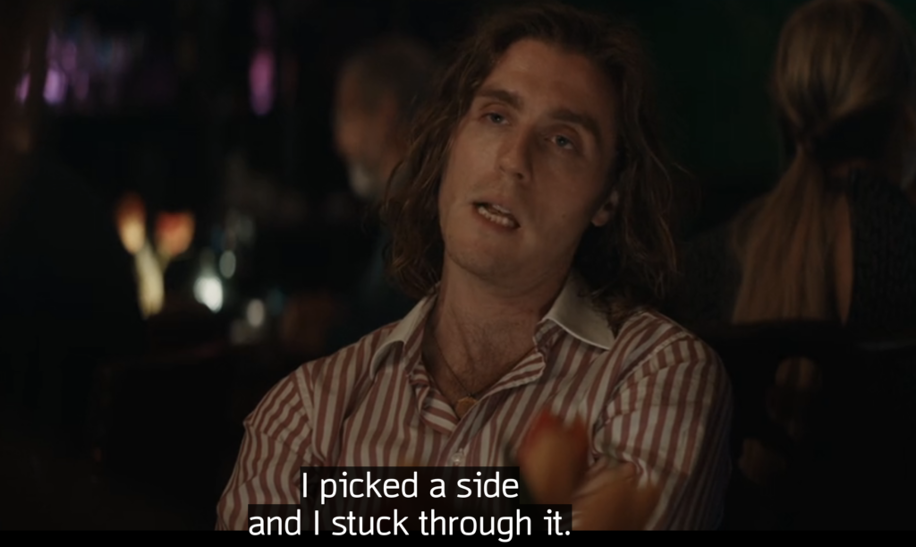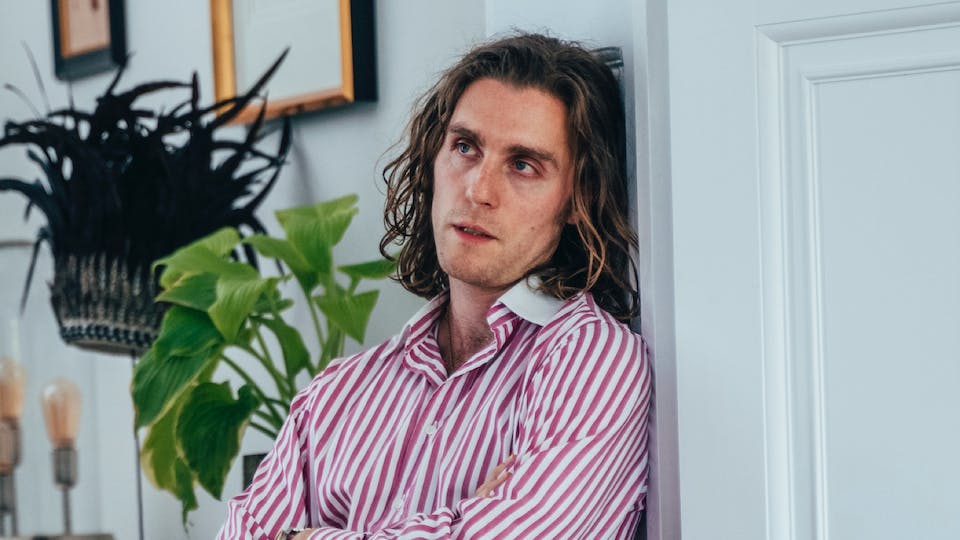CW// Childhood abuse, abusive relationships, and toxic friendship
Have you seen the Max/BBC show “Rain Dogs?” No? Ok, have you heard of it? Honestly you’d be forgiven, because “Rain Dogs,” like so much fantastic British content on HBO, often gets short shrift, especially when it happens to come premiere alongside one of the app’s biggest shows like “Succession,” or that other one about the dragon houses.
But let me tell you: “Rain Dogs” is sensational. It’s one of those shows that doesn’t have to say or do a lot to get under your skin. It’s about real people doing their best in a world that sucks. Primarily it’s about a sex worker trying to eke out a living and raise a child as a single mother, all while dealing with a seriously under-discussed aspect of abuse.
And here’s where things start to get gay. Costello Jones, a single mother in her 30s, is raising her young daughter in London. When we first meet her, she’s getting evicted from the council flat she can no longer afford. She’s forced to find lodging—and work—elsewhere, and while sex work has traditionally paid the bills, Costello hopes to be a writer. And as any writer will tell you, it’s not easy.
Related:
‘Fire Island’ Actor Conrad Ricamora Will Gladly Play Queer Characters for the Rest of His Life
If Conrad Ricamora’s played characters sharing queer joy for the rest of his career, he would relish the idea.
Costello, as we find out later, had to leave home at a young age. Her mother sexually abused her as a child, and when Costello spoke out about this, her entire family abandoned her in favor of protecting her abuser. As a result, Costello had to find her own path, and it involved some pretty scary and non-optimal situations. When she was first pregnant with her daughter Iris, she had to move into a shelter for abused women, a place she’s been in and out of ever since. Because Costello’s only real friend in the world—and her only real protector—is Florian Selby, a violent, rich gay man who’s been there for Costello since University. But he’s not the protector we think he is, and we find this out the hard way.
“Rain Dogs” is, at heart, a story of chosen family. But it doesn’t sidestep the aspects of chosen family that can be just as painful—and often just as abusive—as biological family. Florian Selby, known simply as “Selby” to his (one) friend, might be bursting with love for Costello and her daughter. He might show up for them, providing them with money and a place to stay when they’re hard up (all the time, basically.) But he’s also abusive, frightening, and violent. When the show begins, he’s just getting out of a year’s stint in prison for violently beating a man during a drunken argument. And while he doesn’t get (too) physically violent with Costello, he is extremely possessive of her, in ways that end up being just as bad—and just as familiar—as her early abuse at the hands of her mother.
But here’s the problem: Selby is an incredible queer character. First off, he’s one of the most beautiful men you’ve ever seen (played by the gorgeous Jack Farthing, of Spencer and “Poldark”) and he carries himself like a Victorian homosexual: his hair is long, his accent is patrician, he wears shabby yet elegant vintage suits in the lapel of which one might expect to see a green carnation blooming. When asked by one of Costello’s dates (because yes, Selby is of course third-wheeling it) if he’s in any “fluid,” Selby hits back with a statement that, by virtue of how utterly unfashionable it is, feels radical. “I’m not a bi or a pan or a fluid,” Selby explains. “I am a classical homosexual.”

It makes perfect sense: Selby is a throwback. He’s the kind of character you don’t see much anymore, outside of period pieces. I’m not saying that’s a bad thing—lord knows we don’t need more cis white gays on TV. But it is an interesting aspect of bad representation. And if you’re like me—someone who craves bad representation—you’re weirdly happy to see it.
Am I happy to see Costello financially abused and desperate? Absolutely not. But “Rain Dogs” is the kind of show where you can’t help loving the characters, even if they’re weak, even if they suck. And Selby is part of that. When he admits to Costello that he’s gambled away all the money she’s saved just to indulge in a bout of spectacular self-hatred, it’s a painful moment. If you’ve ever experienced abusive, toxic, or complicated platonic relationships with friends, you probably know the exact combination of fear, misery, horror, and understanding that hit me during this scene. Selby loves Costello and Iris, but he loves them in the wrong way. He can’t save them with money, so he decides to use money as a tool in gaining power over them. His attachment couldn’t be less secure, and because the world has abandoned him, he’s completely incapable of showing real love or care to the people he loves like family.
Writing a scene like that is an incredible balancing act: as viewers, we feel a tightrope-thin line between our impulse to pity Selby and shut the door on him forever. He’s an abuser who loves his victim—and isn’t that every abuser? The fact that their relationship is platonic doesn’t matter. They’re too intertwined, they’re too interdependent. And Costello, finally realizing this, once again checks into the women’s shelter in an attempt to get away from Selby, the man she knows is simply too violent, too controlling, and too weak to be the family she and her daughter need right now.
“Rain Dogs” is not a fun, easy watch. It’s a hard show that puts the viewer in a painful position. We want the best for Costello, and because Costello loves Selby, we want the best for him too. But we’re also allowed to see just how f*cked up he is. It’s not easy to give such nuance to an abusive character, and we don’t often see abusive gay characters in media unless they’re portrayed as 100% evil, manipulative partners.
But if there’s anything we learned from the recent streaming hit “Queer Love: The Ultimatum,” it’s that domestic abuse—as well as abuse within families and friendships—takes many forms. It’s not always easy to recognize, and it’s not always easy to break away from.
Florian Selby is a great character precisely because he’s this complex, this true to life. Sometimes he’s a monster. Sometimes he’s angel. Sometimes he’s the friend Costello needs in an uncaring world, a world that threw both of them to the dogs at an early age. And sometimes he’s exactly the thing that’s holding her back.
When I first saw the show, I couldn’t believe how real it was. I couldn’t believe it was this committed to making us care about a character this violent, this broken, this real. But I can’t stop thinking about “Rain Dogs,” and about Selby, for this reason. We need characters like this, because life is like this. “Rain Dogs” is the rare show that takes viewers to dark places without apology or warning. It’s perhaps as close to stark realism as a BBC show can get. And it’s part of what I hope the next wave of queer representation will be: a slate of shows that don’t demonize or neuter their gay characters, but keep them as complex, sh*tty, and honest as they come to us in real life.
Don't forget to share:
Help make sure LGBTQ+ stories are being told...
We can't rely on mainstream media to tell our stories. That's why we don't lock our articles behind a paywall. Will you support our mission with a contribution today?
Cancel anytime · Proudly LGBTQ+ owned and operated
Read More in Entertainment
The Latest on INTO
Subscribe to get a twice-weekly dose of queer news, updates, and insights from the INTO team.
in Your Inbox














